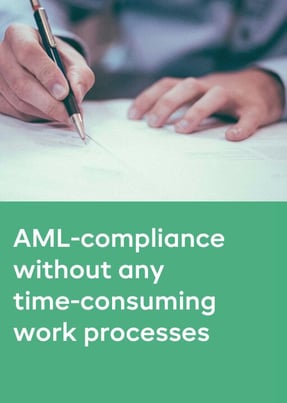PEP checks are crucial after the EU elections
The European Parliament elections created a lot of new Politically Exposed Persons (PEPs). Therefore, it is now extra important to pay attention to the PEP check in client investigations. If a client is identified as a PEP, an enhanced investigation must be conducted.
Additionally, continuous monitoring of existing relationships is essential. Use reliable sources to determine the PEP status of your clients and keep in mind that the list of PEPs changes after elections. This approach ensures integrity and compliance with AML regulations.
Did you already know that the RegLab application also allows you to automatically screen for PEPs?
Ignoring AML requirements leads to high costs
After all, this could lead to hefty penalties and reputational damage
The importance of KYC
All businesses, regardless of industry, are at risk of fraud. You may be unknowingly involved in money laundering activities when your services are used to deposit, transfer or withdraw money.
With this reason, you are not only responsible for understanding the AML/KYC obligations, but also for implementing the right procedures to prevent money laundering.
Not complying with AML is expensive
KYC is crucial not only to combat money laundering, but also to protect one's own business interests. After all, not complying with AML can lead to hefty penalties and reputational damage. This applies not only to financial institutions, but also to lawyers, notaries, tax advisers and accountants.
In 2022, institutions worldwide received nearly USD 5 billion in fines for violating sanctions and deficiencies in KYC and AML processes. This trend continued in 2023.
Unfortunately, it does not stop there. The publication of the penalty could lead to reputational damage, which could be even more damaging than the fines themselves.
We see that until now many lawyers have only received a warning from the regulator when they are incompletely compliant with AML, but take note. This is about to change. In several countries, such as the Netherlands, Belgium and the UK, penalties are now being increased for law firms that are incompletely AML compliant.
How to avoid AML fines
Failure to implement AML correctly can result in penalties. This is imposed for every offence. The most common AML deficiencies that result in a penalty are:
Make AML a dynamic part of your work process, ensuring that your AML records stay up to date. It helps if you use software such as RegLab that performs automatic screenings for sanction lists, watchlists, PEPs and adverse media. It is also important to train your team regularly on AML requirements.
With sunny regards,
Team RegLab







